CRTPA 2013 Program
Brian Thwaits
Train Your Brain
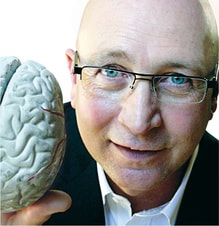
Brian Thwaits shows people how to enhance their learning, communication, creativity, and problem-solving and thinking skills. As an engaging and entertaining “brain trainer,” Thwaits’ sessions tap the latest brain research and learning theories to suggest—in fun and delightful ways—innovative and practical approaches to handling issues within the workplace and in our personal lives.
A former educator, with over 25 years of teaching and training experience, Thwaits is the author ofThe Big Learn: Smart Ways to Use Your Brain. In showcasing ongoing studies and phenomenal technological advances that brain research has uncovered, the book challenges conventional wisdom about how we truly use our minds.
Thwaits is also the recipient of the “President’s Award for Excellence” from Mohawk College; it acknowledges his work as researcher and instructor at the institution.
A former educator, with over 25 years of teaching and training experience, Thwaits is the author ofThe Big Learn: Smart Ways to Use Your Brain. In showcasing ongoing studies and phenomenal technological advances that brain research has uncovered, the book challenges conventional wisdom about how we truly use our minds.
Thwaits is also the recipient of the “President’s Award for Excellence” from Mohawk College; it acknowledges his work as researcher and instructor at the institution.
Kevin Rumsey
Relationship Building and Aboriginal Learning
Applying the 5 Rs in Aboriginal Adult Learning
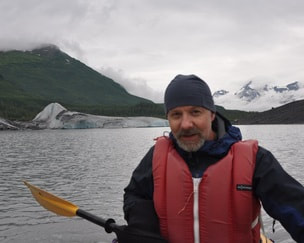
Kevin has recently retired from Aboriginal Affairs with over 23 years of water governance experience in Canada’s north. He specialized in water resources protection and capacity building for First Nations drinking water management in Yukon.
Kevin also spent 2 years working and volunteering overseas in Afghanistan, Indonesia, India and Kenya coordinating humanitarian water aid for populations at risk and environmental protection work with NATO. He is also a stand-by partner with UNICEF in emergency response for coordinating water sanitation and hygiene in large scale disasters.
Kevin holds a Master’s degree in human security and peacebuilding, a Bachelor of Science degree in environmental science and a technical Diploma in watershed management.
Kevin believes strongly that treating all people with respect, dignity and building positive relationships is the foundation for success.
Kevin also spent 2 years working and volunteering overseas in Afghanistan, Indonesia, India and Kenya coordinating humanitarian water aid for populations at risk and environmental protection work with NATO. He is also a stand-by partner with UNICEF in emergency response for coordinating water sanitation and hygiene in large scale disasters.
Kevin holds a Master’s degree in human security and peacebuilding, a Bachelor of Science degree in environmental science and a technical Diploma in watershed management.
Kevin believes strongly that treating all people with respect, dignity and building positive relationships is the foundation for success.
Steve Hrudey
Disinfection Byproducts
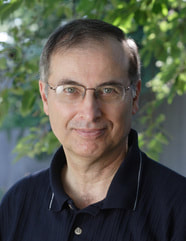
Dr. Steve E. Hrudey, Professor Emeritus, Analytical & Environmental Toxicology, Faculty of Medicine & Dentistry, University of Alberta, has been engaged in research and environmental risk management practice for 40 years.
He has served on more than 25 expert panels including the Research Advisory Panel to the Walkerton Inquiry, an international expert panel advising the U.S. Army Corps of Engineers regarding drinking water quality risks for Washington, D.C. and the expert panel on Safe Drinking Water for First Nations in Canada.
Dr. Hrudey was elected a Fellow of the International Water Association in 2010, a Fellow of the Society for Risk Analysis in 2007, a Fellow of the Academy of Sciences, Royal Society of Canada in 2006.
Dr. Hrudey was awarded a Queen Elizabeth II Diamond Jubilee Medal from the Royal Society of Canada for service to scholarship in science, the 2013 Research Excellence Summit Award of the Association of Professional Engineers and Geoscientists of Alberta and the 2012 A.P. Black Award, the top research prize of the American Water Works Association.
He has co-authored or edited over 165 refereed journal articles, 9 books, 26 book chapters, 22 expert panel reports, and more than 100 other publications in the environmental health sciences.
He has served on more than 25 expert panels including the Research Advisory Panel to the Walkerton Inquiry, an international expert panel advising the U.S. Army Corps of Engineers regarding drinking water quality risks for Washington, D.C. and the expert panel on Safe Drinking Water for First Nations in Canada.
Dr. Hrudey was elected a Fellow of the International Water Association in 2010, a Fellow of the Society for Risk Analysis in 2007, a Fellow of the Academy of Sciences, Royal Society of Canada in 2006.
Dr. Hrudey was awarded a Queen Elizabeth II Diamond Jubilee Medal from the Royal Society of Canada for service to scholarship in science, the 2013 Research Excellence Summit Award of the Association of Professional Engineers and Geoscientists of Alberta and the 2012 A.P. Black Award, the top research prize of the American Water Works Association.
He has co-authored or edited over 165 refereed journal articles, 9 books, 26 book chapters, 22 expert panel reports, and more than 100 other publications in the environmental health sciences.
Andreas Weingartner
Optimization Through Monitoring
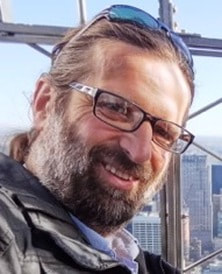
Born 1962 in Vienna, Austria, co-founder, co-owner, and managing director of s::can Messtechnik GmbH. After completing his degrees (MSc equivalent) in water management and water treatment at the University of Natural Resources and Applied Life Sciences (BOKU), Vienna, he worked as a freelancer for several consultant engineers, and for the Institute for Water Management at the University of Life Sciences from 1989 to 1994. From 1994 to 1998 he was employed as a research and educational assistant professor at the above named institute. He lectured in water chemistry, water treatment at the BOKU, and also lectured in sustainable environmental engineering at the Vienna University of Technology. He was responsible for management of the bench and full scale laboratories and the support of student diploma theses in the area of drinking water treatment processes at the BOKU. One of his academic highlights was being the winner of the highly regarded, international "Chemviron Carbon Award" for developing activated carbon adsorption simulation models and related process improvements. Later, with s::can Messtechnik GmbH, he won the Austrian "Neptun" innovation award for new sensors development.
He was one of the first to use on-line UV-spectrometry for the control of water treatment processes in 1996, and has published the results of this works in scientific papers in journals in the areas of drinking water treatment, of online water quality measurement, and spectroscopy. Furthermore, he has acted as project manager in several Austrian as well as European research projects in said areas
Since the founding of s::can Messtechnik GmbH in 1999 he has been running the company as the managing director while at the same time keeping final responsibility for R&D strategy and new product development, and still managing the development of the USA market, as a director of s::can USA. With s::can Messtechnik GmbH positioning itself as a research focused private company, mr. Weingartner overviews and has a consulting role in projects in drinking water monitoring and implementation of sensors into water security networks being performed in most European countries, several Asian countries, and the USA. Member of IWA, AWWA, and of several European local organizations.
He was one of the first to use on-line UV-spectrometry for the control of water treatment processes in 1996, and has published the results of this works in scientific papers in journals in the areas of drinking water treatment, of online water quality measurement, and spectroscopy. Furthermore, he has acted as project manager in several Austrian as well as European research projects in said areas
Since the founding of s::can Messtechnik GmbH in 1999 he has been running the company as the managing director while at the same time keeping final responsibility for R&D strategy and new product development, and still managing the development of the USA market, as a director of s::can USA. With s::can Messtechnik GmbH positioning itself as a research focused private company, mr. Weingartner overviews and has a consulting role in projects in drinking water monitoring and implementation of sensors into water security networks being performed in most European countries, several Asian countries, and the USA. Member of IWA, AWWA, and of several European local organizations.
Don Degenhardt
Maintenance Trainers - Training Session
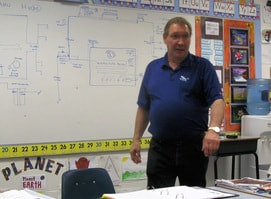
Don Degenhardt is a Technical Advisor for the First Nations (Alberta) Technical Services Advisory Group (TSAG). Don performs the Alberta First Nation Asset Condition Inspections and Reporting (ACRS), and for the past 3 years, in coordination with AANDC, Don is concentrating on Annual (ACRS) School Inspections including Preventative Maintenance Training workshops with hands-on training in regards to Boiler and HVAC Heating systems.
Don is a Construction Engineering Technologist for 24 years and a Certified Engineering Technologist (C.E.T.) with the Association of Science and Engineering Technology Professionals of Alberta (ASET) for 22 years. Don has over 42 years of experience in the construction industry, and has Interprovincial tickets in Plumbing, Gas Fitting and Steam Fitting. He also has his Fourth Class Power Engineering certificate and has a Level 1 Instructor Certificate from NAIT. Don has worked with First Nations for over 20 years.
TSAG is a unique organization that delivers a number of essential services to First Nations in Alberta. These services, among other things, enable communities to work towards self-sufficiency and economic growth. Our goal is to assist First Nation communities in achieving and maintaining high standards in technology and services.
TSAG is mandated by the Chiefs of Alberta via a Chiefs’ Steering Committee and a Board of Directors, both with representation from the Treaty 6, 7 and 8 regions.
The Preventative Maintenance program began in 2011 as a part of the TSAG’s Asset Condition Reporting Systems (ACRS). The focus of the program is to improve School conditions in First Nation communities. This presentation will focus on how the Preventative Maintenance program (Building Systems) can assist to improve the conditions and extend the life of Schools, and other Public Buildings, while ensuring a safe and comfortable environment for Students, Teachers and related Public Works building staff.
Don Degenhardt (C.E.T.)
Technical Advisor
First Nations (Alberta) Technical Services Advisory Group
Office (780) 483-8601 Cell (780) 499-3125 Email [email protected]
Don is a Construction Engineering Technologist for 24 years and a Certified Engineering Technologist (C.E.T.) with the Association of Science and Engineering Technology Professionals of Alberta (ASET) for 22 years. Don has over 42 years of experience in the construction industry, and has Interprovincial tickets in Plumbing, Gas Fitting and Steam Fitting. He also has his Fourth Class Power Engineering certificate and has a Level 1 Instructor Certificate from NAIT. Don has worked with First Nations for over 20 years.
TSAG is a unique organization that delivers a number of essential services to First Nations in Alberta. These services, among other things, enable communities to work towards self-sufficiency and economic growth. Our goal is to assist First Nation communities in achieving and maintaining high standards in technology and services.
TSAG is mandated by the Chiefs of Alberta via a Chiefs’ Steering Committee and a Board of Directors, both with representation from the Treaty 6, 7 and 8 regions.
The Preventative Maintenance program began in 2011 as a part of the TSAG’s Asset Condition Reporting Systems (ACRS). The focus of the program is to improve School conditions in First Nation communities. This presentation will focus on how the Preventative Maintenance program (Building Systems) can assist to improve the conditions and extend the life of Schools, and other Public Buildings, while ensuring a safe and comfortable environment for Students, Teachers and related Public Works building staff.
Don Degenhardt (C.E.T.)
Technical Advisor
First Nations (Alberta) Technical Services Advisory Group
Office (780) 483-8601 Cell (780) 499-3125 Email [email protected]
Cliff Bowman
Reporting and Record Keeping
How to Improve / Motivate Operators to Perform Better
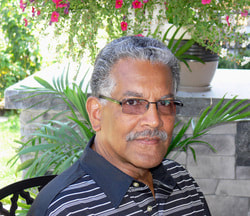
Prior to his retirement in July 2012, Cliff Bowman had been Project Engineer with TSAG in the ACRS Unit. He is a Professional Civil Engineer with more than 40 years experience in the Private and Public Sectors, mainly in the municipal field.
Before joining TSAG, Cliff was employed in the Public Service of Canada with the Department of Indian and Northern Affairs and also Public Works Canada. As District Engineer with INAC in Prince Albert, Saskatchewan from 1983-1999 he established operator training programs for water and wastewater facilities and building maintenance programs for educational facilities in First Nations communities within the North Central District. In addition, he led the District’s Technical Services team in implementing major capital projects in the District and provided technical advisory services to First Nations and Departmental staff.
In the fall of 1999 he relocated to Edmonton to accept the position of Head of Asset Management and later was Senior Project Engineer on the Water File for the Alberta Region during which time the first National Assessment on Water and Wastewater facilities was completed.
Before moving to Canada, he managed and co-owned a Consulting Engineering firm on the Caribbean island of St. Vincent. He was also Roads Engineer for the Government of St. Vincent and the Grenadines.
He’s a graduate of St. Francis Xavier University in Nova Scotia, and received his Civil Engineering degree from The Technical University of Nova Scotia.
Before joining TSAG, Cliff was employed in the Public Service of Canada with the Department of Indian and Northern Affairs and also Public Works Canada. As District Engineer with INAC in Prince Albert, Saskatchewan from 1983-1999 he established operator training programs for water and wastewater facilities and building maintenance programs for educational facilities in First Nations communities within the North Central District. In addition, he led the District’s Technical Services team in implementing major capital projects in the District and provided technical advisory services to First Nations and Departmental staff.
In the fall of 1999 he relocated to Edmonton to accept the position of Head of Asset Management and later was Senior Project Engineer on the Water File for the Alberta Region during which time the first National Assessment on Water and Wastewater facilities was completed.
Before moving to Canada, he managed and co-owned a Consulting Engineering firm on the Caribbean island of St. Vincent. He was also Roads Engineer for the Government of St. Vincent and the Grenadines.
He’s a graduate of St. Francis Xavier University in Nova Scotia, and received his Civil Engineering degree from The Technical University of Nova Scotia.
David Normand
AANDC On-Reserve Management Planning
Guides and Templates
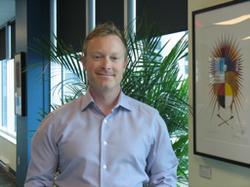
David Normand is a Senior Municipal Engineer with the Engineering and Technical Services Directorate of the Community Infrastructure Branch at Aboriginal Affairs and Northern Development Canada (AANDC). David works with AANDC’s water and wastewater team developing and maintaining technical standards, guidelines and protocols in support of the Capital Facilities and Maintenance Program. David recently worked in collaboration with technical experts across Canada to develop a series of guides and templates to help First Nations and their Contractors to develop Source Water Protection Plans (SWPPs), Emergency Response Plans (ERPs), and Maintenance Management Plans (MMPs) for their drinking water and wastewater systems. These guide and templates explain basic concepts and provide step-by-step guidance to First Nations as they develop their own on-reserve management plans.
David has extensive civil engineering experience both in the private and in the public sector. Prior to joining AANDC in 2011, David worked on water resources and environmental files for 9 years with the Commissioner of the Environment and Sustainable Development in Ottawa. David has a Master's Degree from Laval University in Civil Engineering.
David has extensive civil engineering experience both in the private and in the public sector. Prior to joining AANDC in 2011, David worked on water resources and environmental files for 9 years with the Commissioner of the Environment and Sustainable Development in Ottawa. David has a Master's Degree from Laval University in Civil Engineering.
Andres De Vleeschauwer
Environment Canada
Andres De Vleeschauwer has always been interested in the management and conservation of natural resources. After spending a few years as a forestry technician in Quebec and British Columbia, he returned to the University of Ottawa and completed a degree in Environmental Studies. Andres was also part of the Co-op Program at the University of Ottawa, which provided him with valuable experience in a variety of programs at Environment Canada and Natural Resources Canada.
Andres joined Environment Canada in 2009, and has worked for the Canadian Wildlife Service and the Wastewater Program. He’s made an important contribution to the implementation of the Wastewater Systems Effluent Regulations by promoting compliance with the Regulations. He has delivered several webinars, helped owners and operators of wastewater systems understand their obligations under the Regulations, and facilitated their reporting in Environment Canada’s Effluent Regulatory Reporting Information System. Andres is also involved in wastewater management in the north, and in the risk management of hazardous substances related to the wastewater sector.
In his free time, Andres is an avid outdoorsman, and enjoys cycling, swimming, hiking, hunting and fishing. He and his girlfriend recently returned from a coast to coast hike on Baffin Island, which required him to ford several icy rivers, battle bugs the size of crows, evade hungry polar bears, and still be on speaking terms with his girlfriend.
Andres joined Environment Canada in 2009, and has worked for the Canadian Wildlife Service and the Wastewater Program. He’s made an important contribution to the implementation of the Wastewater Systems Effluent Regulations by promoting compliance with the Regulations. He has delivered several webinars, helped owners and operators of wastewater systems understand their obligations under the Regulations, and facilitated their reporting in Environment Canada’s Effluent Regulatory Reporting Information System. Andres is also involved in wastewater management in the north, and in the risk management of hazardous substances related to the wastewater sector.
In his free time, Andres is an avid outdoorsman, and enjoys cycling, swimming, hiking, hunting and fishing. He and his girlfriend recently returned from a coast to coast hike on Baffin Island, which required him to ford several icy rivers, battle bugs the size of crows, evade hungry polar bears, and still be on speaking terms with his girlfriend.
